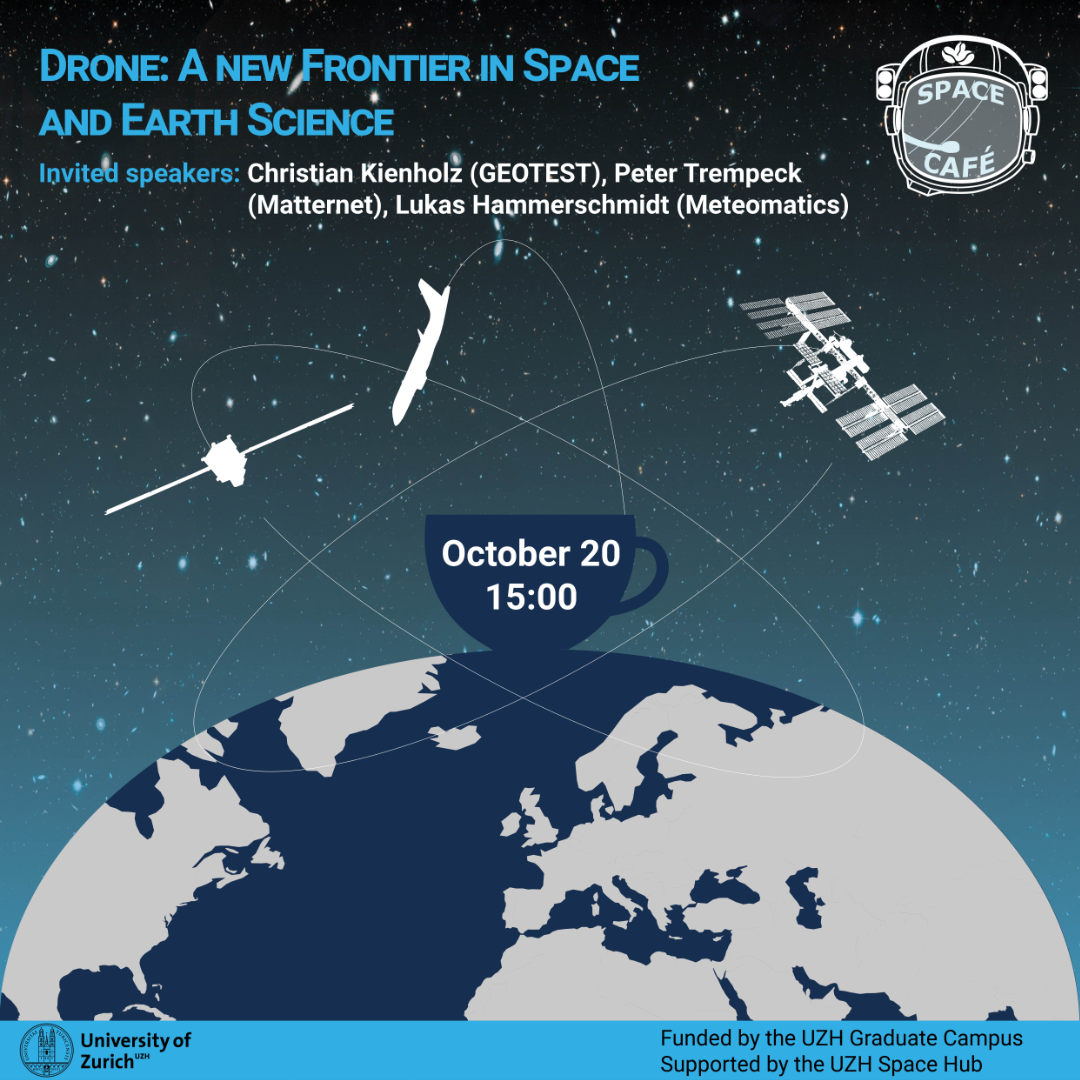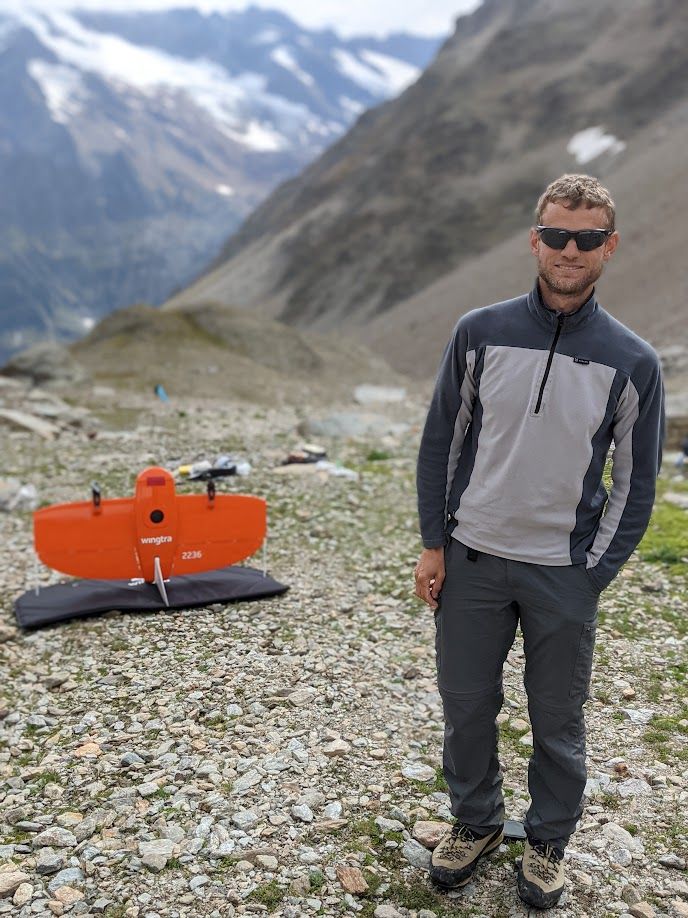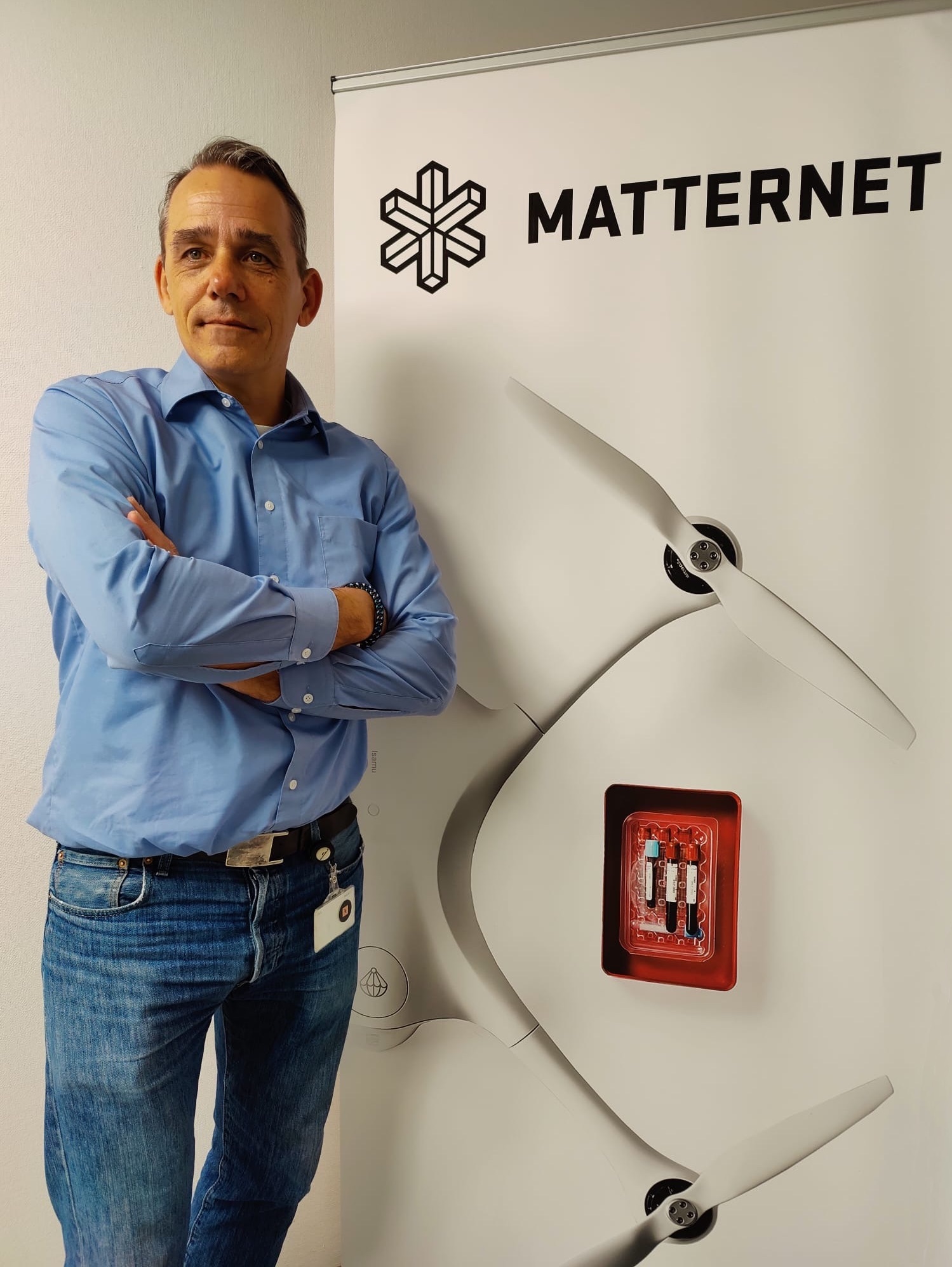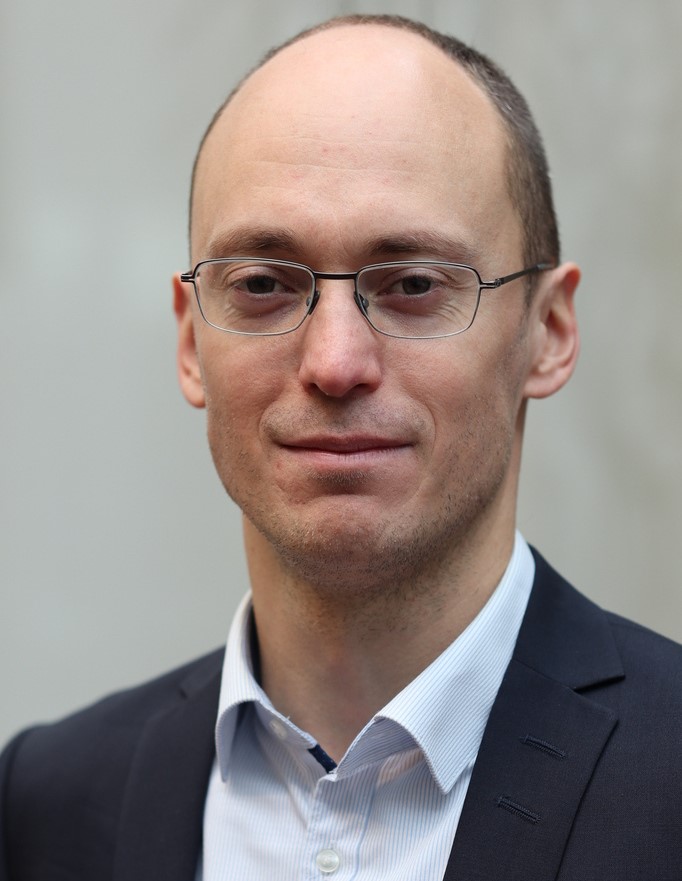Drones: A new frontier connecting Science and Industry

Want to know more about drones flying into storms, over rockslides or over Campus Irchel with laboratory samples?
Drones – A new frontier connecting Science and Industry! The use of drones is becoming increasingly common for answering various research questions and more and more companies rely on drones too. At our next Space Café event, three speakers from companies based in Switzerland will present the diverse potential of drones:
- Drones for natural hazards: How can we benefit from drones for hazard monitoring? Christian Kienholz, GEOTEST
- Drone for delivery services: How can delivery drones help securing essential transport? Peter Trempeck, Matternet
- Weather drones: What are the advances of meteodrones over traditional methods for weather data collection? Lukas Hammerschmidt, Meteomatics
Join us on October 20, 2022, at 15.00 on Irchel Campus (Y25-H79) to learn more about exciting applications of drones!
Registration (see end of the page) is appreciated for the planning of the catering but spontaneous participation is welcome.
More about Space Café event series.
Speakers

Christian Kienholz is part of the Engineering Geology Department at the GEOTEST branch in Zollikofen, Bern. He specializes in natural hazards, with a particular interest in their monitoring. Currently, he is a project leader for hazard management at the Spitze Stei rockslide in Kandersteg (https://www.gemeindekandersteg.ch/spitze-stei). Christian holds a PhD in Snow, Ice and Permafrost Geophysics from the University of Alaska.
Talk
My presentation focuses on the use of drones at GEOTEST for natural hazard monitoring. I will share which drone types we use for which applications. I will also present the products we obtain from drone data and their benefits compared to the products from other monitoring methods. Use cases from Switzerland include slide monitoring at the Spitze Stei rockslide, Kandersteg; glacier lake outburst flood monitoring at the Plaine Morte glacier, Lenk; and debris flow monitoring at Spreitgraben, Guttannen. I will also present applications from Alaska and Greenland.

Peter Trempeck started working with Matternet in 2018 as UAS Operator Technician. In 2019 he moves to Operations & Logistics and since April 2022 he is Swiss Team Lead for Operations.
Talk: City of the future - Drones as a means of transport for essential infrastructure
I will present our vision of what we think is a growing problem for the infrastructure in cities all over the world and also in Zurich. By implementing the Matternet Solution, we think we can be of help in securing essential transports.

Lukas Hammerschmidt has a PhD in Theoretical Chemistry with a strong background in natural and computer sciences. He joined Meteomatics in 2017 as a Software Developer with focus on scientific model developments and the Meteomatics’ API. Since 2018, he is heading the drone development team and the drone operations.
Talk
Meteomatics’ aspiration is to make high-quality weather data broadly accessible to businesses and – ultimately – to improve on current weather forecasts with frequent and reliable UAV measurements. This endeavor led to the development of our in-house made Meteodrones, enabling operators to routinely gather weather data from the mid & low atmosphere. Today, even altitudes beyond the planetary boundary layer and up to 6 km above ground / 500 hPa are within reach of the company’s Meteodrones. The Meteobase, as a remote UAV base with a centralized operational control, completes these measuring tools and allows for routine and high-frequent soundings.